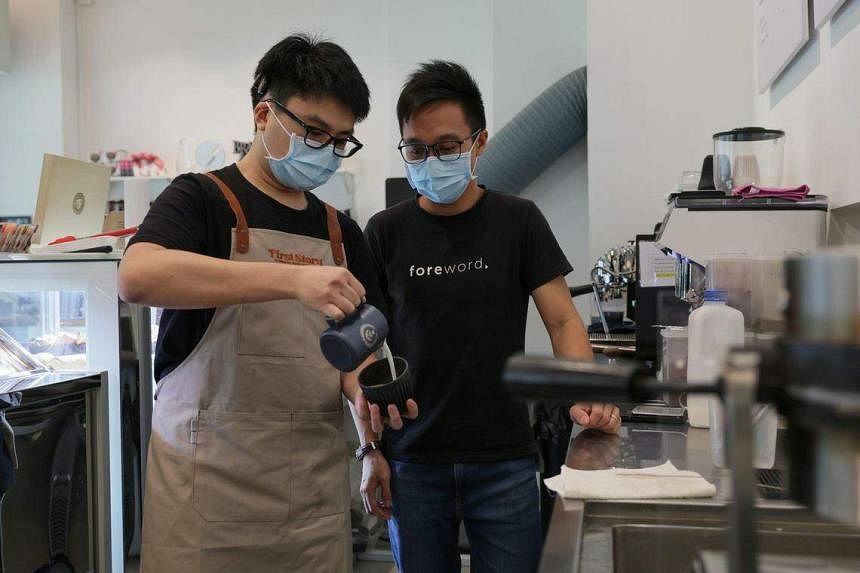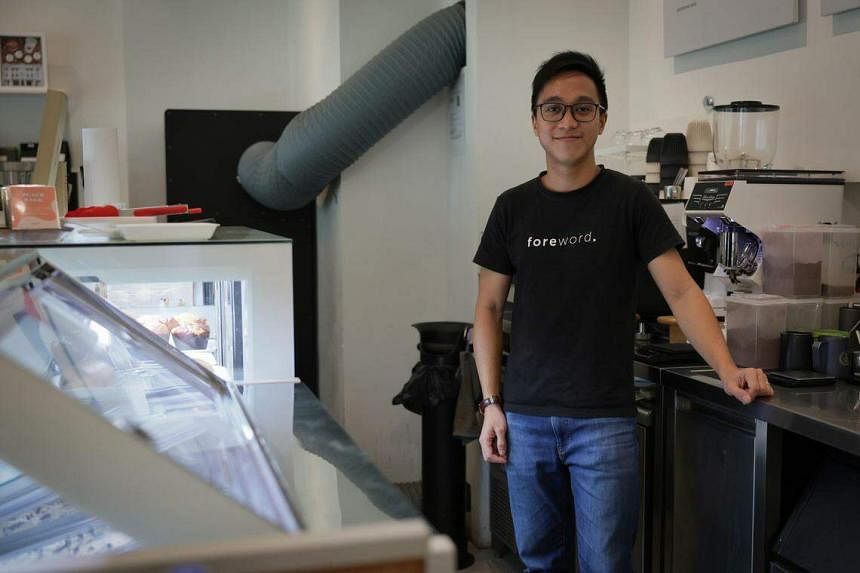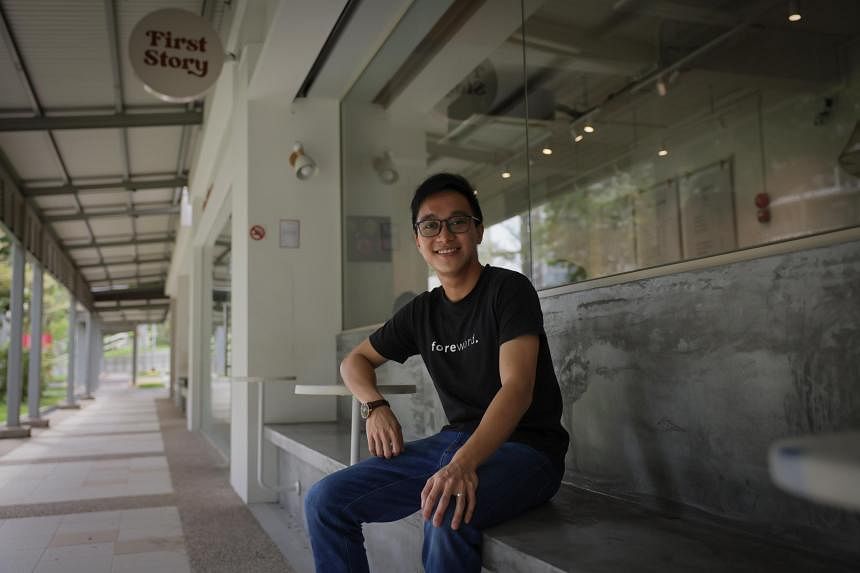SINGAPORE – My first encounter with the folks at Foreword Coffee Roasters was a somewhat awkward affair.
Rushing for time and unaware that I was speaking to someone with a hearing disability, I had rattled off my coffee order to the cashier, who, instead of responding verbally, pointed to his ears and smiled.
I did not understand his gesture, so I unabashedly raised my voice and repeated my order. Luckily, my friend quickly stepped in to help translate the order using sign language, much to my relief and everybody’s amusement.
This short interaction led me to seek out the man behind Foreword: Mr Lim Wei Jie.
Founded in 2017, Foreword Coffee Roasters is a Singapore-based social enterprise start-up that employs individuals with disabilities or special needs in its cafes and coffee roastery.
Mr Lim, its co-founder and director, hopes to reduce social stigma by placing such workers in customer-facing roles, thereby giving them more opportunities for public interaction.
“If we have more opportunities to interact with people with disabilities, we will have more positive experiences and view them as more diverse and able than what we think,” said the 32-year-old.
Of the 35 employees working in Foreword’s seven cafes here, around 80 per cent are people with disabilities, special needs or mental health conditions.
Part-time staff make up about half the company’s workforce. Mr Lim said part-time employees are compensated at a rate below the market average to encourage their transition to full-time positions, while full-time staff receive a competitive salary.
The workers, usually referred to Foreword by social service agencies like the Singapore Association for the Deaf or focal agency SG Enable, are able enough to live and work independently, but they do not qualify for mainstream employment because of the time needed to train and place them in suitable roles.
The majority of Foreword’s supervisors are deaf, and they are tasked with managing employees who may have other special needs or disabilities, such as autism, mild intellectual disability or cerebral palsy.
Mr Lim, who studied psychology at the National University of Singapore (NUS), said that besides the challenges of running a business, working with people with disabilities or special needs can be emotionally taxing.
He also has to manage the expectations of his employees’ parents, some of whom have high expectations for the business to provide for their children for the long term.
“The challenge so far is always how to renew our energies, and keep ourselves going,” he said, adding that it takes a lot of time and patience to train his staff.
But tough choices are part and parcel of running Foreword, he said.
The start-up has had to fire some of its workers due to behavioural issues and job mismatches.

“The first employee I let go worked with me for almost three years. He was great in his role, but he has autism and all my supervisors were unable to manage him... If someone cannot gel with the team, I can’t just sacrifice our team culture for one individual,” Mr Lim said.
As there are no signs at Foreword’s cafes indicating that it employs workers with disabilities, customer expectations can be another wild card.
Mr Lim noted that customers have complained that the service provided was subpar simply because their orders were not understood or they had to repeat themselves.
“We want our customers to know that people with disabilities are able to serve normally, given sufficient training,” he said.
“The ones who need to change are us – we need to change the way we communicate and the way we treat people with disabilities.”

To date, Foreword has raised about $450,000 from its founders and entrepreneurship schemes like the DBS Foundation Grant Programme, the Lotus-NUS Fund, and the VentureForGood Grant by the Singapore Centre for Social Enterprise.
The start-up is currently breaking even, and is seeking funds from impact investors.
Foreword also runs a coffee pushcart which can be hired for corporate events. It will open its eighth cafe at the Esplanade by mid-2024.
Mr Lim, who is married but has no children, said that when he launched Foreword, he had to communicate with his employees through written instructions on notepads. He eventually became proficient in sign language after completing a 10-week course.
Additionally, he incorporates psychology theories, such as the ABC Model (incorporating antecedents, behaviour and consequences), as a tool to understand any problematic behaviour at work.
Reflecting on his start-up journey, Mr Lim noted that it took “some naivety” to start Foreword.
He said: “As I gained maturity over the past years, I realised that it’s much tougher than I expected... But it’s rewarding, and I want to grow the business’ influence in the disability community so that we can continue to advocate for them.”
Fun facts about Lim Wei Jie
- He runs to de-stress.
- He likes to cook with his wife.
- He collects ceramic coffee cups.


